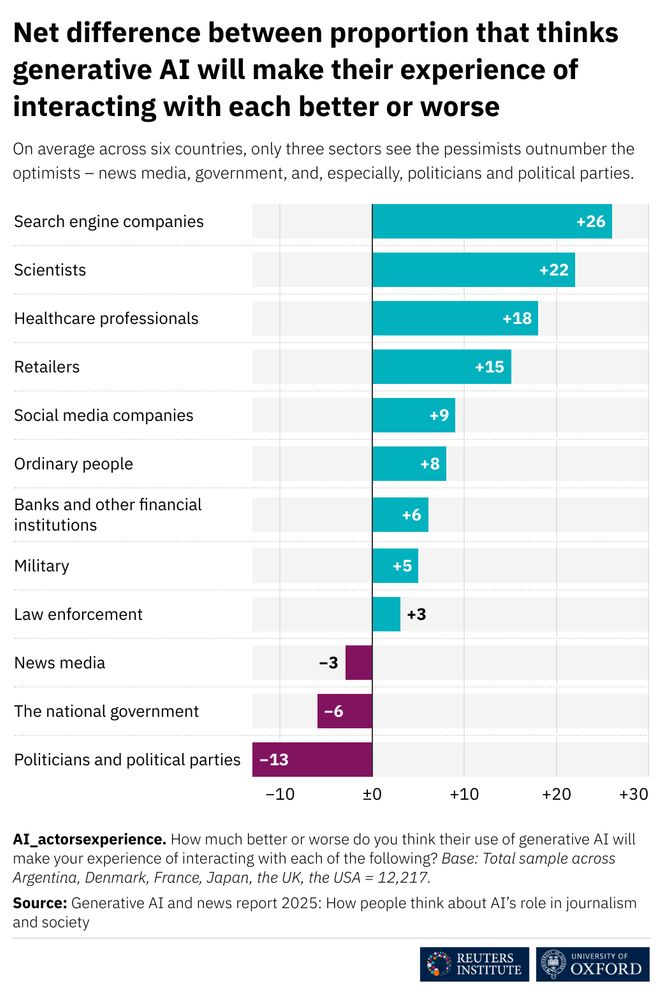Felix M. Simon
@felixsimon.bsky.social
7.4K followers
790 following
1.3K posts
Research Fellow in AI and News, Reuters Institute, Oxford University | Research Associate & DPhil, Oxford Internet Institute | AI, news, (mis)info, democracy | Affiliate Tow Center, CITAP | Media advisor | My views etc…
https://www.felixsimon.net/
Posts
Media
Videos
Starter Packs
Pinned
Reposted by Felix M. Simon
Reposted by Felix M. Simon
Reposted by Felix M. Simon
Reposted by Felix M. Simon
Reposted by Felix M. Simon
Reposted by Felix M. Simon
Reposted by Felix M. Simon



















